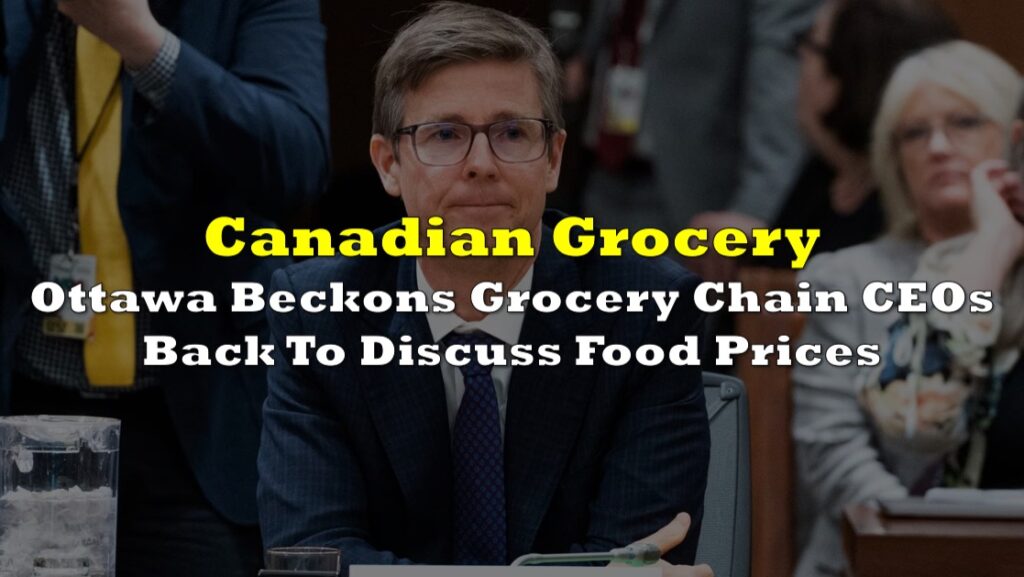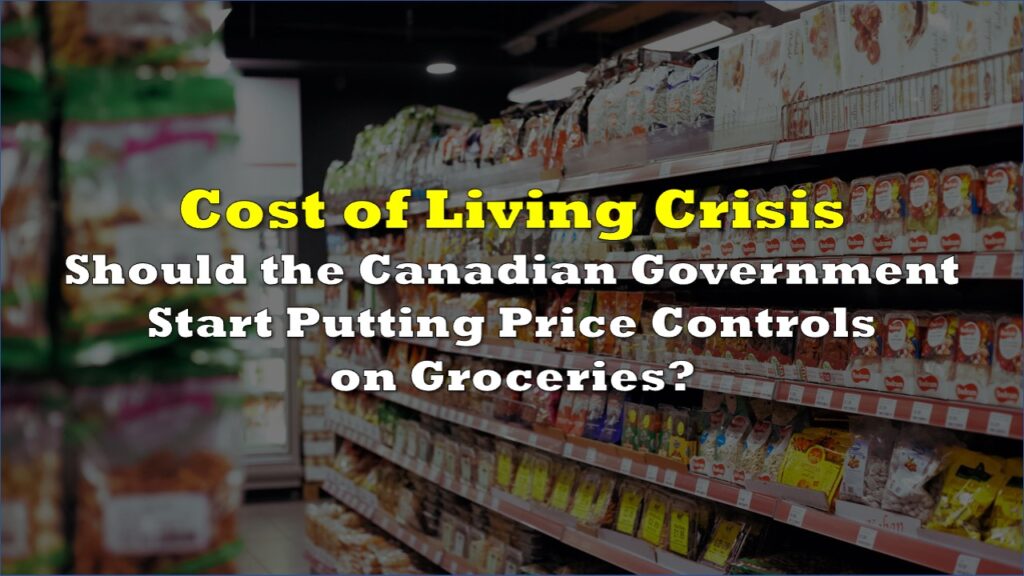The global inflation that surged two years ago has proven more persistent than central banks had predicted. While this has been attributed to several causes including the Covid-19 pandemic-induced supply chain disruptions, and energy, food, and raw-material shortages due to Russia’s invasion of Ukraine, a recent trend of businesses increasing their profit margins has been pointed out as a major contributing factor.
Recently released figures from Statistics Canada highlighted that consumer prices across Canada were 4.3% higher than the previous year in April, more than double the target of the Bank of Canada. This trend is also seen in the US, the EU, and numerous other countries, despite rapid and significant interest-rate hikes unseen since the 1980s.
Food prices in particular have remained resiliently high, despite other CPI categories showing signs of slowing down. Indeed, grocers have not been hesitating to pass down higher prices onto consumers, leading to increased frustration at the checkout. Soon-to-be-outgoing Loblaws CEO Galen Weston has earned himself a generous 11% increase in compensation in 2022 totaling $11.8 million. Loblaws, meanwhile, saw revenue levels rise 6% in the first quarter 2023 thanks to higher sales of necessities including groceries and medications.
I don't think it should ever be okay — that in Canada Loblaws earned $520 million in Q4 profits while Canadians turned to food banks in record numbers.
— Jagmeet Singh (@theJagmeetSingh) March 8, 2023
Today – CEOs like Galen Weston have been summoned to Parliament – they’ll be forced to answer for it.
Prominent food professor and director of the agrifoods analytics lab at Dalhousie University Dr. Sylvain Charlebois argued that consumers’ anger towards Weston are unwarranted, because “food inflation is inherently a global phenomenon, mainly affected by supply chain woes, energy costs, higher commodity prices and climate change,” and that “other grocers have raised prices to the same extent as Loblaws.”
However, according to University of Massachusetts assistant professor of economics Isabella Weber, an interesting pattern has emerged whereby the inflationary period has subconsciously prompted consumers to accept the notion of higher prices. Ordinarily, price hikes would be expected to drive customers to competitors with lower prices.
However, the widespread understanding of increasing costs due to circumstances like a post-pandemic economic reopening allows businesses to raise prices, knowing competitors will likely do the same. Companies are successfully convincing consumers that increased prices are due to supply and energy bottlenecks, not the companies’ fault, thereby maintaining brand reputation. Another example of this is Nestlé, which reported a 5.6% sales increase in the first quarter 2023 even though the company hiked prices 9.8%.
Another aspect of this price surge has been the search for higher profits in sectors like food supply, where competition is limited due to dominance by a few firms. Economists at insurance company Allianz suggest that about 10% of the recent food price rise reflects profit seeking. Yet, not all businesses are solely focused on expanding margins. Some businesses closer to the final consumer are cautious of potential backlash.
During recent earnings calls, some executives revealed that consumers are becoming more resistant to price hikes. For example, Nestlé’s chief financial officer predicted a decrease in pricing, while Procter & Gamble cautioned about the limits of their pricing strategy before consumers switch to cheaper alternatives.
Paul Donovan, chief economist at UBS Global Wealth Management, told the Wall Street Journal that the phase of profit-driven inflation may be nearing its end due to increased public outcry. A reputation of poor value for money could have long-lasting effects on a company, urging them to reconsider their profit padding strategies.
Information for this briefing was found via the sources mentioned within the article. The author has no securities or affiliations related to this organization. Not a recommendation to buy or sell. Always do additional research and consult a professional before purchasing a security. The author holds no licenses.









